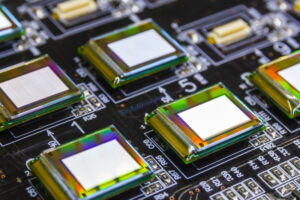Russian sentenced to prison for smuggling Dutchess company’s devices
A Hong Kong businessman who bought military-grade microelectronics from a Dutchess County manufacturer was sentenced on July 17 to three years in prison for smuggling the devices for Russia.
Maxim Marchenko, 52, had asked U.S. District Court Judge Nelson S. Román for a 10-month prison sentence and credit for the 10 months he has served since his arrest last September.

“An unduly lenient sentence of time served is not the message that this court should send to the public,” prosecutors advised the judge in a sentencing letter, “especially at a time when Russia is relying on U.S.-sourced electronics and components to continue its aggression against Ukraine.”
Marchenko, a Russian national who lived in Hong Kong, paid $1.6 million for OLED (organic light-emitting diode) displays. The devices can be used in commercial products, such as electron microscopes, or for military weapons such as rifle scopes and night-vision goggles.
Court papers do not identify the Dutchess manufacturer, but eMagin, a Samsung Electronics Co. affiliate in Hopewell Junction, makes OLED displays.
Marchenko had done business with a Dutchess company before Russia invaded Ukraine in February 2022 and had shipped the devices to Russian customers, according to court records. But when the U.S. imposed tough import sanctions after the invasion, company officials worried that their technology could put U.S. or NATO forces in harm’s way, and they decided to stop selling the devices to Russian customers.
Then Marchenko and two Russian conspirators set up shell companies to buy the electronics and disguise the destination. For instance, the manufacturer was told that the devices would be put in electron microscopes and used for medical research in China, Hong Kong, Malaysia and Europe.
The Dutchess manufacturer referred Marchenko’s front companies to an undercover company controlled by law enforcement.
Marchenko was arrested on Sept. 18 and charged with smuggling, money laundering and fraud. He pled guilty on Feb. 29.
Though he admitted his illegal conduct, prosecutors Jennifer N. Ong and Shiva H. Logarajah state in the sentencing letter, he minimized his involvement and downplayed the seriousness of his actions.
They point out that Marchenko lied repeatedly, told an undercover agent that his network could erase serial numbers with lasers, and told the agent how to avoid reporting requirements. He disguised the movement of money and devices. He owned and operated the front companies that were used to conceal the destination of the electronics. His companies brought in $40 million a year and he was paid $300,000 a year.
The prosecutors recommended imprisonment for 57 to 71 months (nearly five to six years).
“Had these orders of micro-displays not been interdicted by law enforcement,” the prosecutors’ sentencing letter states, “Russia would have been armed with thousands of units of military-grade technologies that had the potential to cause widespread harm to U.S. national security interests.”